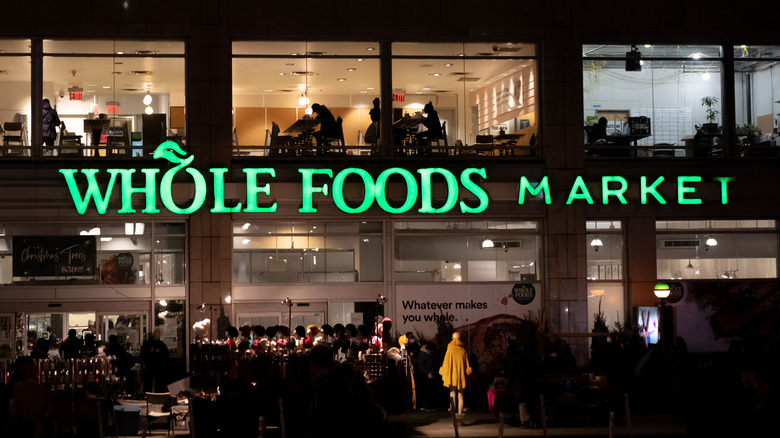Is Whole Foods Actually More Affordable Than Trader Joe's?
Perhaps because both stores appeal to parts of the same broad demographic, comparisons between the prices of Trader Joe's and Whole Foods have occurred with some regularity. Most would expect Trader Joe's to be cheaper, as it is branded such, while Whole Foods has the reputation of being expensive. And most would be right. However, as the following pieces show, the word cheaper is doing a lot of work to distinguish the two.
In 2015, two years before Amazon acquired Whole Foods, SFGate ran a piece comparing the cost of staple items at each store. At Whole Foods, they spent $133.18. At Trader Joe's, $109.27. The piece does note that if they had also bought the specialty items from Whole Foods, their bill would have soared even higher.
After the change in ownership, CNBC tested the prices again, finding that they spent $41.45 at Whole Foods and $37.15 at Trader Joe's. This is about the same difference Philly Mag reported in 2018 when they tried Aldi, Whole Foods, Trader Joe's, and ACME, a Northeast regional supermarket chain. Again, they discovered that Trader Joe's was cheaper than Whole Foods with a trip costing $53.97 vs. $59.89.
What is more interesting with Philly Mag's wider range of comparison, however, is that Whole Foods and Trader Joe's were closer to each other in price range than to Aldi, which was the cheapest option with $46.28, or ACME, the most expensive, with $72.94. So, neither brand really deserves the reputation they enjoy, as they have both become middle class options.
Why do we believe there's such a difference between the two?
As mentioned, Whole Foods had previously earned its reputation as a higher-priced brand before its acquisition by Amazon. However, as both the drop in prices we have seen and Investopedia's 2020 examination shows, the "Whole Paycheck" image is diminishing. Their comparison point is Kroeger. Before the Amazon takeover, Kroeger was about half the price of Whole Foods. Now it is closer to a quarter, except in the case of produce, where Whole Foods has actually become cheaper than Kroeger. Whole Foods will never be a cheap or discount brand, but its luxury status has definitively changed.
Trader Joe's offers more of a surprise. Originally, it was supposed to be the nice but cheap brand, reflecting the fact that it is owned by Aldi Nord. However, Real Simple backs up Philly Mag's data. Aldi, or Aldi Süd, is now the noticeably cheaper brand. This might be because Trader Joe's was founded by someone else and was retroactively fitted to align with Aldi principles, while Aldi has stuck with the pure Aldi principles. This is best seen in CNN's coverage of Aldi's famous carts policy. They note that other American grocers had tried this in the '90s, but gave up in the face of customer dissatisfaction. Aldi, however, persevered. So, while Whole Foods has diluted its luxury brand status to be more squarely middle class attainable, Trader Joe's has never embraced the no frills philosophy behind Aldi's cheapness.

